Key Takeaways
- AI has the potential to transform HR by streamlining processes, improving accuracy, and providing personalized recommendations.
- To use AI effectively and ethically, HR professionals must consider the ethical implications of using AI, ensure data quality, involve stakeholders, provide transparency and explainability, use human oversight, ensure privacy and security, and test and evaluate regularly.
- By following best practices and staying up-to-date with the latest developments in AI, HR professionals can use AI to its fullest potential, benefiting both employees and the organization as a whole.
In the world of HR, AI is becoming increasingly prevalent, and for good reason.
PWC predicts that AI could contribute up to a whopping $15.7 trillion to the global economy as soon as 2030
AI has the potential to transform how HR professionals approach talent management, recruitment, and employee engagement.
At least 50% of HR professionals are using some form of AI at work in 2019, a jump from 32% in 2018.
AI-powered tools and algorithms can analyze large amounts of data quickly and accurately, freeing up HR professionals to focus on strategic initiatives that drive business success.
For instance, AI can help HR professionals identify patterns in job applications, resumes, and candidate qualifications, enabling them to make data-driven hiring decisions.
Similarly, AI can be used to analyze employee performance data, identify skill gaps, and develop personalized training plans to boost employee productivity and job satisfaction.
82% of people believe robots can support their careers better than humans
However, with the growing adoption of AI in HR comes concerns about the ethical implications of its use. HR professionals need to ensure that AI is used ethically, transparently, and in a way, that benefits all employees.
In this blog post, we will explore how HR can use AI effectively and ethically.
We will examine the benefits of AI in HR, ethical considerations for using AI, examples of AI in HR, and best practices for implementing AI in HR.
Whether you’re an HR professional or a business owner looking to adopt AI in your HR practices, this post will provide valuable insights on how to leverage AI effectively and ethically in your HR practices.
So, if you’re curious about how AI can help HR streamline processes, reduce bias, and make data-driven decisions, while still maintaining ethical practices, then keep reading.
Before we venture further into this article, we like to share who we are and what we do.
About 9cv9
9cv9 is a business tech startup based in Singapore and Vietnam with a strong presence all over the world.
With over six years of startup and business experience, and being highly involved in connecting with thousands of companies and startups, the 9cv9 team has listed some important learning points in this overview of what are some considerations of using AI in HR and how to use them effectively and ethically.
If your company needs recruitment and sourcing HR services, you can use 9cv9 hiring services. Book a consultation slot here, or send over an email to [email protected].
HR and AI: How can HR use AI effectively and ethically?
- Benefits of AI in HR
- Ethical considerations for using AI in HR
- Examples of AI in HR
- Best Practices for Implementing AI in HR
- What do Top HR professionals say about AI in HR?
1. Benefits of AI in HR
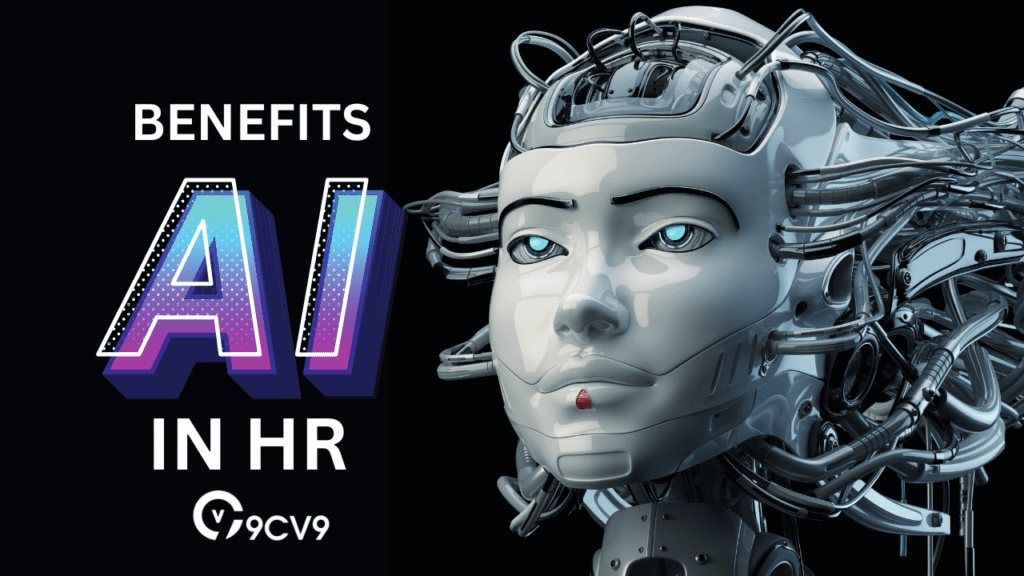
Here are some benefits of AI in HR:
- Streamlining HR processes: One of the primary benefits of AI in HR is that it can help streamline various HR processes. For instance, AI-powered tools such as ChatGPT can automate administrative tasks, such as scheduling interviews, screening resumes, and sending out job offer letters. This frees up HR professionals to focus on more strategic initiatives that require human expertise.
- Improved decision-making: AI can help HR professionals make more informed decisions by providing them with data-driven insights. For example, AI can analyze employee performance data to identify patterns and trends, enabling HR professionals to make data-driven decisions about promotions, training, and development.
- Reduced bias: AI can help reduce bias in HR processes. For instance, AI can be used to screen resumes and job applications to eliminate unconscious bias by focusing on objective criteria such as skills and experience. Similarly, AI can be used to analyze job postings and identify potentially biased language, ensuring that job descriptions are inclusive and attract a diverse pool of candidates.
- Improved candidate experience: AI can help create a more personalized and efficient candidate experience. For example, chatbots powered by AI can answer candidate questions 24/7, and candidates can receive real-time feedback on their application status.
- Enhanced employee engagement: AI can help HR professionals better understand employee needs and preferences, enabling them to develop more personalized engagement strategies. For example, AI can analyze employee sentiment data from surveys, pulse checks, and social media to identify areas of concern and take proactive steps to address them.
AI can help HR professionals streamline processes, improve decision-making, reduce bias, enhance the candidate experience, and improve employee engagement.
However, it is essential to use AI ethically and responsibly to avoid negative consequences.
Also read: How to use ChatGPT for hiring
2. Ethical Considerations for using AI in HR

As with any new technology, AI in HR raises ethical concerns that must be addressed to ensure its responsible use.
Here are some ethical considerations to keep in mind when using AI in HR:
- Privacy concerns: AI tools that collect, store, and analyze personal data can raise privacy concerns. It is essential to ensure that employees and candidates are informed about how their data is being used and stored and that it is protected from unauthorized access.
- Bias and discrimination: AI systems are only as unbiased as the data they are trained on. If the training data is biased or incomplete, the AI system will replicate those biases, leading to discrimination. HR professionals must ensure that AI systems are transparent and free from bias and that they comply with anti-discrimination laws.
- Transparency and explainability: AI systems can be complex and difficult to understand. HR professionals must ensure that AI systems are transparent and explainable, meaning that they can be easily understood by all stakeholders.
- Fairness: AI systems should be designed to ensure fairness and equal treatment for all employees and candidates. HR professionals must ensure that AI systems do not unfairly advantage or disadvantage any group.
- Human oversight: While AI can help automate routine tasks, human oversight is still crucial. HR professionals must ensure that AI systems are used to augment human decision-making, not replace it entirely.
Ethical considerations for using AI in HR include privacy concerns, bias and discrimination, transparency and explainability, fairness, and human oversight.
HR professionals must take a responsible and ethical approach to the use of AI to ensure that it benefits all employees and candidates, rather than harming them.
3. Examples of AI in HR
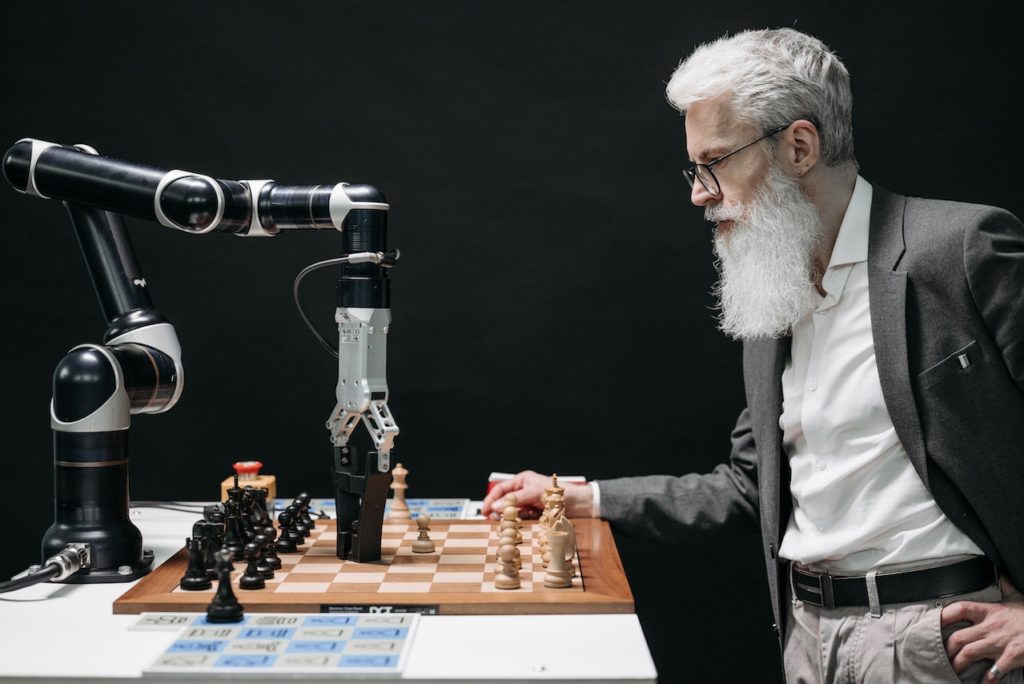
Here are some examples of AI in HR:
- Recruiting: AI can be used to automate the recruitment process, from sourcing and screening resumes to scheduling interviews. For instance, AI-powered chatbots can interact with candidates, answer their questions, and provide personalized recommendations.
- Employee engagement: AI can help HR professionals better understand employee sentiment and preferences by analyzing data from surveys, social media, and other sources. For instance, AI-powered tools can identify areas of concern and suggest interventions to improve employee engagement.
- Performance management: AI can help HR professionals analyze employee performance data to identify trends and patterns. For instance, AI-powered tools can analyze employee feedback, goal progress, and performance metrics to develop personalized performance improvement plans.
- Learning and development: AI can help HR professionals develop personalized training plans for employees. For instance, AI-powered tools can analyze employee skill sets and job requirements to recommend relevant training courses and resources.
- Talent management: AI can help HR professionals identify and retain top talent. For instance, AI-powered tools can analyze employee data to predict which employees are at risk of leaving and recommend interventions to retain them.
- Diversity and inclusion: AI can help HR professionals reduce bias and promote diversity and inclusion. For instance, AI-powered tools can analyze job postings for biased language and recommend more inclusive alternatives.
AI can be used in various HR processes, including recruiting, employee engagement, performance management, learning and development, talent management, and diversity and inclusion.
By using AI to automate routine tasks, analyze data, and provide personalized recommendations, HR professionals can free up time for more strategic initiatives and make data-driven decisions that benefit all employees.
4. Best Practices for Implementing AI in HR
Here are some best practices for implementing AI in HR:
- Define clear goals: Before implementing AI in HR, it is essential to define clear goals and objectives. HR professionals should identify specific areas where AI can be used to improve efficiency, accuracy, and effectiveness.
- Ensure data quality: AI relies on high-quality data to make accurate predictions and recommendations. HR professionals should ensure that the data used to train AI systems is accurate, unbiased, and complete.
- Involve stakeholders: To ensure that AI is used effectively and ethically, HR professionals should involve key stakeholders in the implementation process, including employees, managers, and IT teams.
- Provide transparency and explainability: HR professionals should ensure that AI systems are transparent and explainable, meaning that they can be easily understood by all stakeholders. HR professionals should be able to explain how AI systems make decisions and what factors are used to inform those decisions.
- Use human oversight: While AI can help automate routine tasks, human oversight is still crucial. HR professionals should ensure that AI systems are used to augment human decision-making, not replace it entirely.
- Ensure privacy and security: AI systems that collect and store personal data can raise privacy concerns. HR professionals should ensure that AI systems comply with data protection regulations and that data is stored securely.
- Test and evaluate: HR professionals should test and evaluate AI systems regularly to ensure that they are functioning as intended and that they are meeting the defined goals and objectives.
Implementing AI in HR requires careful planning, involving stakeholders, ensuring data quality, providing transparency and explainability, using human oversight, ensuring privacy and security, and testing and evaluating regularly.
By following these best practices, HR professionals can ensure that AI is used effectively and ethically, benefitting both employees and the organization.
5. What do Top HR professionals say about AI in HR?
“Generative AI has been a hot topic lately, with attention on ChatGPT from OpenAI, Microsoft’s enhanced Bing search, and Google’s Bard. While the talent acquisition industry has been experimenting with AI, such as using ChatGPT to match CV data to role profiles, it’s important to remember that the decisions we make with AI can have a significant impact on people’s lives and livelihoods.
We must approach AI with caution and prioritize safety and fairness. While AI has incredible potential, it cannot do everything, and we must use it wisely. As people professionals, we cannot opt-out entirely, so it’s essential to be experimental yet mindful of the ethical implications. Ultimately, our confidence and assurance come from being actively engaged in the process.” – Perry Timms, Chief energy officer, PTHR
“AI is revolutionizing the way HR teams work, offering unprecedented efficiency and time-saving opportunities. With uses for AI throughout the employee lifecycle, the potential for transformation is staggering. Imagine using generative AI to create tailored job descriptions that pinpoint the exact competencies needed for a role or generating interview questions based on those competencies. Even internal communications can benefit from AI, with the ability to adjust the tone of voice to make information more engaging for employees.
However, it’s important to remember that AI should support our work, not replace it. Blindly trusting AI-produced content can lead to disastrous consequences that go against our values. We must remain vigilant in checking everything to ensure it aligns with our principles.
No one has found the perfect formula for using AI, and it’s crucial not to trust it blindly. While AI offers tremendous potential, we must remain aware of its limitations and flaws. With caution and creativity, we can harness the power of AI to achieve unprecedented success in the HR industry.” – Gosia Adamczyk, director of HR, Verve Group
“AI is more than just a tool for HR professionals; it has the potential to revolutionize the way we hire, develop, and manage employees. While there are clear benefits to using AI in HR, we must also be aware of its potential drawbacks and limitations.
“On the positive side, AI can help us make more data-driven decisions, remove biases from the hiring process, and identify overlooked talent. However, if not implemented carefully, AI can perpetuate biases, miss critical factors in decision-making processes, and ultimately harm diversity, equity, and inclusion efforts.
“To avoid these potential negative effects, HR professionals must take a proactive approach to AI implementation. This includes being mindful of biases in the data used to train AI algorithms, involving diverse perspectives in development and implementation, and regularly evaluating the impact of AI on DEI initiatives. With careful consideration, AI can be a powerful tool for HR professionals to achieve their goals while maintaining a fair and equitable workplace.” – Manny Athwal, founder, the School of Coding
“AI technology has the potential to disrupt the impact of unconscious biases in human decision-making, but there’s a catch. Biases from underlying data sets can become entrenched in AI algorithms, resulting in a seemingly neutral decision-maker that’s actually biased. The new AI framework doesn’t change the legal obligations against discrimination or promote equity but rather encourages sector regulators to ensure compliance with anti-discrimination laws. To accomplish this, human understanding and continuous oversight of AI technology are critical. It’s essential to proactively minimize the potential for human biases to seep into the technology being created, reviewed, and updated.” – Kelly Thomson, Employment partner, RPC
Conclusion
AI has the potential to transform HR by streamlining processes, improving accuracy, and providing personalized recommendations.
By automating routine tasks and analyzing data, HR professionals can free up time for more strategic initiatives and make data-driven decisions that benefit all employees.
However, to ensure that AI is used effectively and ethically, HR professionals must consider the ethical implications of using AI, ensure data quality, involve stakeholders, provide transparency and explainability, use human oversight, ensure privacy and security, and test and evaluate regularly.
As AI continues to evolve, HR professionals must stay up-to-date with the latest developments and best practices.
By doing so, HR professionals can ensure that AI is used to its fullest potential, benefiting both employees and the organization as a whole.
AI can be a valuable tool for HR professionals, but it must be used responsibly and ethically.
By considering the ethical implications of using AI, involving stakeholders, and following best practices, HR professionals can use AI to improve efficiency, accuracy, and effectiveness while ensuring that employees are treated fairly and respectfully.
If you find this article useful, why not share it with your recruitment and HR friends and also leave a nice comment below?
We, at the 9cv9 Research Team, strive to bring the latest and most meaningful data, guides, and statistics to your doorstep.
If you need 9cv9’s hiring team to help you find the best talents (with or without the use of AI), then book a free consultation slot here.
Source:








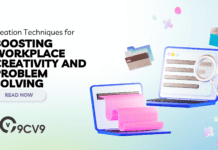
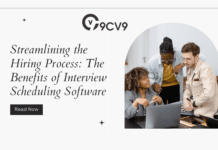


















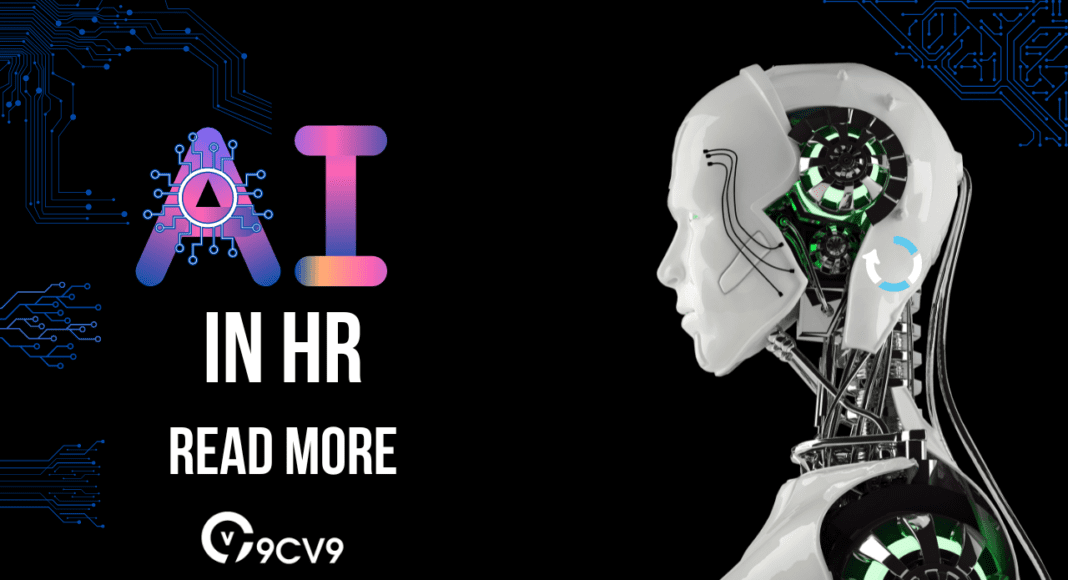


![Writing A Good CV [6 Tips To Improve Your CV] 6 Tips To Improve Your CV](https://blog.9cv9.com/wp-content/uploads/2020/06/2020-06-02-2-100x70.png)


